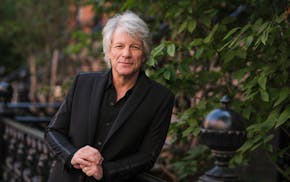I feel bad saying this right off the top, but I hate successful, beautiful women who are insecure about themselves, who say (and even write!) things like, "I hate my purse" and "I feel bad about my neck."
I say, Get over it! It's just a neck! If you hate your purse, clean it out, throw it out, do without.
Funny, Nora Ephron hides her neck under scarves and turtlenecks in one essay, but in another proclaims, "My religion is Get Over It."
Contradictory! But, God, I love her for it.
I didn't love her in the beginning. She struck me as just too … snarky. Mean. Did you read how she ripped up sweet Tricia Nixon? And so very personal, too. I mean, do we really need to know every thought or feeling she's ever had, or that she's more interested in sex than Norman Mailer? (And, how does she know?)
So in the beginning of this boulder of a book, a posthumous collection of her life's work, I wasn't sure I could finish. Pieces she wrote in the 1970s, as a budding journalist, first at the skanky New York Post, seemed silly, insignificant, peevish. But I stuck with her, into her life as an advocate, a profiler of other women, a novelist ("Heartburn"), a playwright ("Lucky Guy") and a screenwriter ("When Harry Met Sally"). She begins to write about food, to blog about politics and finally — although she did it fitfully all her life — to turn very, very intimate about her soul and spirit and story.
Hang with her. You will learn some astonishing things — that, for example, she herself did not write the most famous line from "When Harry Met Sally," from an older woman at a deli after Sally fakes an orgasm: "I'll have what she's having." When you read or re-read "Heartburn," you should know it is an extremely thinly veiled rendition of the collapse of her second marriage, to star Watergate journalist Carl Bernstein. You will learn that after that divorce, she spilled the secret of Deep Throat's identity to anyone who would listen. You will come to know her as a sister, ripening like a peach with the approach of old age, growing not just wittier but wiser and deeper and even forgiving.
Ephron writes as I've tried to in this review, with a jaunty, rambling self-confidence. She is a puppy who will jump into your lap and lick you, whether you like it or not. An example is the beginning of "The O Word," each sentence its own paragraph:
"I am old.
"I am sixty-nine years old.
"I'm not really old, of course.
"Really old is eighty.
"But if you are young, you would definitely think that I'm old."
And a few lines later, in a litany of how being old appears: "Your cleavage looks like a peach pit."
She also totally gets it about marriage and divorce and love and the "insane grief" of losing it. "When you've had children with someone you're divorced from, divorce defines everything; it's the lurking fact, a slice of anger in the pie of your brain."
She is more clever than any of my friends or yours, and more entertaining than any of your family. With her, 555 pages fly by like 555 miles in a 747 (except for those first hundred pages or so). By the end, she forgives Carl Bernstein (never naming him). And she faces death, which will take her in 2012 at the oh-too-young age of 71. By then, you will have forgiven her youthful callousness and embraced her.
Or at least I did. But what do I know? I feel good about my neck, my cleavage is good enough.
Susan Ager, a former columnist for the Detroit Free Press, is at susan@susanager.com.
Olympian Kristi Yamaguchi is 'tickled pink' to inspire a Barbie doll

After 4 decades in music and major vocal surgery, Jon Bon Jovi is optimistic and still rocking
Rom-com author Emily Henry knows the secret to having a healthy relationship with love

